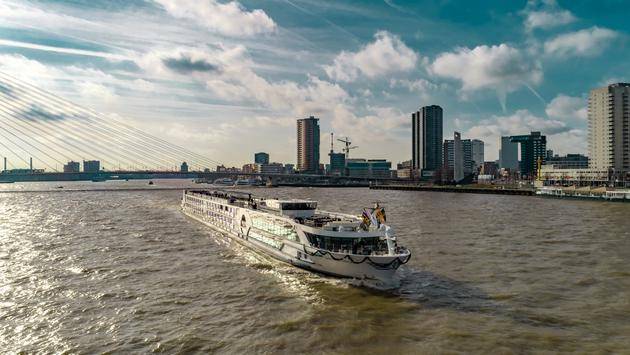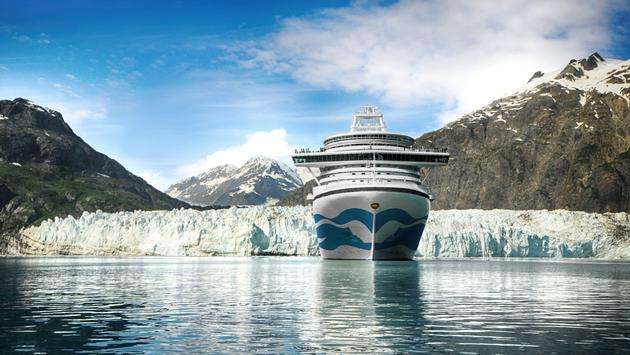July 21,2023
What to Know If You’re Escaping in an RV This Weekend
by Bin Xu
Whether you’re headed out in a Sprinter van, Airstream, RV, or other self-contained adventure vehicle, there are a few new things to consider when it comes to staying safe.
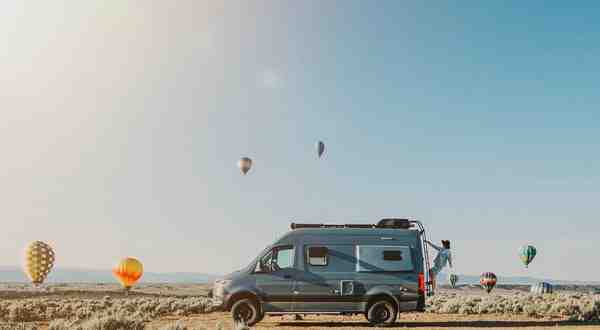
Self-contained RVs seem like the perfect way to head out of town on an adventure right now, but there are a number of things to keep in mind so that you can travel safely and responsibly.
share this article
It’s going to be a weird summer this year. Traditionally it’s the perfect time of year to take advantage of the good weather and take road trips and go camping. But in the midst of the COVID-19 pandemic, the jury remains out on whether or not it’s really OK to go camping right now. The CDC, for one, still strongly recommends we all stay home as much as possible. However, state and national parks are slowly starting to allow day use visitors. Some are even reopening campsites that had closed to slow the spread of the coronavirus. Increasingly, travelers are looking at self-contained RVs as the perfect way to travel safely during this pandemic. You may have noticed more and more camper vans, RVs, and teardrop trailers in your neighborhood. Peer-to-peer RV rental companies confirm that bookings are through the roof right now. If you’re one of those hitting the road this weekend, here’s what you need to know about keeping yourself and the communities that you visit safe during your RV trip. Before you go Plan your route ahead of time “Planning where you are going before you book an RV is always a good first step,” Jon Gray, CEO of the peer-to-peer RV booking site RVshare tells AFAR. “In this case, that is even more important. RVers need to do their research before traveling and think ahead about where they are going to not only stop for the night but stop for gas and supplies.” Reducing the number of stops you make reduces the number of virus transmission points you encounter. For the same reason, you might want to consider one destination, rather than stringing together a few places. Plus, setting up in one spot for the long weekend means you won’t have to break down camp and set up again; you can focus on relaxing instead. Make reservations It’s the Summer of Reservations and things are booking out fast. David Basler, vice president of the National Association of RV Parks and Campgrounds, told the Colorado Sun, “In states that are opening, we are hearing from our members on a daily basis that they went from no reservations to booked solid in no time.” And things are changing quickly: Campendium, a popular campsite resource, noted that as of May 20, 2020, 36 percent of U.S. campsites listed on the site are closed due to COVID-19, down from a high of 46 percent in late April. Jen Young, cofounder and CMO of the peer-to-peer booking site Outdoorsy, tells AFAR that during normal times there’s quite a bit of flexibility around reservations at RV parks and certain campgrounds. “But with a lot of places making necessary changes to their protocols and limiting how many people can come in, it’s best to check things in advance and make reservations.” You should also check any day-use regulations on local hiking trails and parks you plan on visiting with local or state park websites. Related A Beginner’s Guide to Taking an RV Trip With Kids Stay close to home
ADVERTISEMENT
Because state and local restrictions differ from place to place, most RVers aren’t traveling far right now. Eighty-two percent of RVshare’s user base plans to stay close to home when traveling this summer, and Outdoorsy is encouraging folks to use this opportunity to check out what’s in their own backyard (so to speak). “When you rent an RV from an owner in your hometown,” says RVshare’s Gray, “it is convenient to be able to bring the RV back to your home to pack-up and stock it with supplies. This will reduce the amount of stops along the way.” (Sensing a theme yet?) Only travel with people you live with Unless you’ve been quarantining with friends for two weeks prior to your camping trip, it’s probably not a good idea to share a self-contained camper for a weekend. Check local and campground guidelines Travelers should check state or local health departments where they are, along their routes, and at their planned destinations, to learn about any new restrictions or regulations in place, such as mandatory masks or required quarantine upon arrival. Toby O'Rourke, president and CEO of Kampgrounds of America (KOA), also recommends you check with your campground to learn about its requirements, as well as what it’s doing to ensure visitors’ safety: “For example, many of our campgrounds have modified check-in processes, are only allowing self-contained RVs to check in, and have temporarily closed pools.” You should also check on your campsite’s rules on fires, especially if you’re booking through a peer-to-peer platform like Hipcamp. Not all sites allow them, which could pose a problem for you if you were planning on cooking over an open fire. Talk with the site host and check out Hipcamp’s fire safety guide to brush up on how to build and extinguish campfires safely. Related Inside the Growing Community of Families on the Road, Full Time Pick an RV with a bathroom Not all RVs have bathrooms and showers. “We’ve seen that although many parks and campgrounds are starting to reopen, their facilities like showers and bathrooms might not be open yet,” says Outdoory’s Young. “So you may want to opt for a bigger model vehicle that has a full bathroom with a shower and a toilet so you won’t have to worry about finding campgrounds with open facilities.” And if you do so, make sure the freshwater tank is full. Disinfect your RV RV rental companies have instituted new cleaning policies for vehicles, but Gray points out that disinfecting the vehicle yourself when you pick it up can go a long way toward helping your state of mind. It might be nice to do this even if you have your own rig, just to start off with a clean slate. Disinfect hard surfaces with an approved cleaning solution, following the directions, and vacuum porous surfaces, laundering if possible. Courtesy of Outdoorsy Head out with friends or family you’ve been living with. Plan your meals Meal planning is usually part of the pretrip checklist, but these days, you’ll want to be extra thorough. Young points out that stocking up on groceries ahead of time will minimize your interaction with smaller communities you may be traveling through. Expect to cook all your own food, and be sure to have plenty of nonperishables in case you end up in a place where grocery stores are closed. When in doubt, pack it
ADVERTISEMENT
Similarly, you may want to overpack so you don’t get to your destination and realize you need to run out for whatever it is you forgot (we’ve all been there). Pack masks, alcohol-based hand sanitizers (at least 60 percent), and whatever other items you would use on a daily basis in your normal routine at home. A good rule of thumb is to be prepared with the supplies you’d need for 72 hours. Young says that Outdoorsy has seen more renters bringing their own cleaning items as well as day-to-day supplies like bedsheets, towels, cooking supplies, and cookware. She says that these are usually provided by RV owners, but travelers who want to be on the safe side like to bring their own. On the road Follow the CDC’s guidelines To protect yourself and others, continue to follow the practices recommended by the CDC, such as washing your hands often and wearing a cloth face covering. Social distance, social distance, social distance It bears repeating—stay six feet away from strangers. Maintain your distance from park rangers and campground attendants to protect both you and them. Avoid congregating at trailheads and viewpoints, and although social activities like campfires are a hallmark of campgrounds and RV communities, now is the time to avoid those. This might also mean opting for smaller, less-known parks and campgrounds rather than hitting the bucket-list ones, which will certainly be more crowded. Related A Safe, Practical Guide to Getting Outside While Social Distancing Treat your RV like a safe haven A weekend escape may give you a feeling of normalcy, but don’t forget that we are still in the middle of a pandemic so you should continue to act with caution. “One of the great things about RVing is that you can control your environment,” says Young. “So when you’re outside the RV, you’ll need to make sure you take the same precautions you would when you’re venturing out of your house—for example, wash your hands after touching things like a gas nozzle and RV hookup.” Be respectful of the communities you pass through “Be cognizant when you’re visiting smaller communities,” says Young. “Residents may not have the same supplies in their stores or the same healthcare infrastructure as big cities.” Play it extra safe in your outdoor activities to avoid getting seriously injured, and drive carefully. There is also something to be said for supporting the economies of the places you visit, even while reducing your contact with residents. Consider searching for a local restaurant that will deliver to your campsite, and make sure you can retrieve your meal in a way that’s safe for you and the driver. Keep your electronic devices clean and charged Be sure to keep your phone, tablet, or computer charged so that you can stay up to date on any news or rule changes in the places you’ll be visiting. And you might want to wipe down your phone more often too. Tips for first timers: In 2019, over 9 million people in the United States owned an RV and over 40 million reported that they regularly go camping with an RV. But there’s a whole new flock of first-time RVers joining the ranks. Fifty-two percent of campers are now considering purchasing an RV, according to KOA’s special COVID-19 edition of its annual North American Camping Report, and Outdoorsy has reported a significant number of first-time visitors to their site. If you’re heading out on your maiden voyage in an RV, there are a few other things you should know and remember, outside of these new COVID-19-related precautions. You can get your RV rental delivered. Young says that many Outdoorsy owners will deliver the RV to your campsite and get everything set up for your arrival so that you don’t have to deal with driving such a big vehicle if you don’t feel comfortable doing so.
Young says that many Outdoorsy owners will deliver the RV to your campsite and get everything set up for your arrival so that you don’t have to deal with driving such a big vehicle if you don’t feel comfortable doing so. Make sure to do a walk-through of the vehicle before hitting the road. RVshare’s Gray says that first timers need to know where to find things like operating the generator, electrical hookups, and dumping the water tanks, as well as how to use them correctly. Even things that seem simple like adjusting the awning might be a little tricky. Many rental companies are now doing virtual walk-throughs on FaceTime too, to avoid unnecessary contact.
RVshare’s Gray says that first timers need to know where to find things like operating the generator, electrical hookups, and dumping the water tanks, as well as how to use them correctly. Even things that seem simple like adjusting the awning might be a little tricky. Many rental companies are now doing virtual walk-throughs on FaceTime too, to avoid unnecessary contact. Familiarize yourself with your insurance policy, says O'Rourke. If roadside assistance isn’t already included, consider adding it through your insurer or with AAA.
says O'Rourke. If roadside assistance isn’t already included, consider adding it through your insurer or with AAA. Download maps or instructions ahead of time, says Young. “A lot of people rely heavily on phone map apps to navigate through their road trips, but Google Maps won’t do you much good without cell service.” This article originally appeared online on May 22, 2020; it was updated on May 26, 2020, to include current information. >>Next: When Will the National Parks Reopen? Here’s What We Know
Products we write about are independently vetted and recommended by our editors. AFAR may earn a commission if you buy through our links, which helps support our independent publication.
RV Safety: How Safe Is an RV Road Trip?
If you’re feeling cabin fever after a year stuck at home but still aren’t ready to jump on an airplane, you might be inclined to opt for an RV road trip this year.
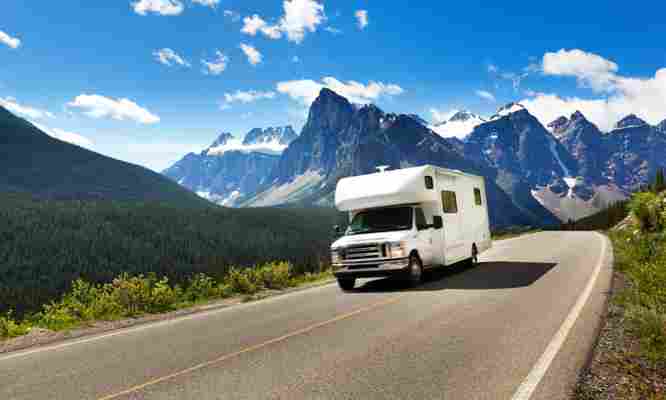
In a lot of ways, recreational vehicles mitigate a number of travel risks, like potentially sitting for hours in a metal tube near a sick passenger or walking through hallways and sharing elevators with other hotel guests. You reduce exposure to potential germs lingering in a room, and you’ll likely be able to skip restaurants in favor of cooking on your own with regularity.
RV rental company Cruise America said in an email that such concerns have led to a 50% year-over-year increase in first-time RV renters between April and August 2020. In fact, one-third of leisure travelers say a road trip will be their reentry point into travel once it’s safe to do so, according to Kampgrounds of America's 2020 North American Camping Report.
But with so many novice RV renters comes a lot of new realizations. A spokesperson for Cruise America told us they’ve experienced a 30%-40% year-over-year increase in time spent on the phone with customers to answer questions, adding that some customers are uncertain about how to drive their vehicles and how to use campgrounds.
And some first-time RV renters are realizing that RV road trips aren’t automatically a safer bet than a more traditional vacation. Here are seven RV safety concerns you should be aware of before booking your first RV rental.
RV safety considerations
1. Rented RVs might not be as clean as you think
While renting an RV can avoid some of the hygiene challenges that hotels present, RVs come with their own sets of high-touch areas including the steering wheel, seat belts, tables, microwaves and doorknobs.
Some RV rental companies have instituted stricter cleaning procedures because of the coronavirus. Cruise America says it sanitizes every vehicle after it’s returned to a level that it claims exceeds Centers for Disease Control and Prevention guidelines for disinfecting nonemergency transport vehicles. But a cleaner RV rental isn’t necessarily a guarantee, particularly if you’re renting directly from a private owner.
Nerdy tip: No matter where you stay, conduct your own cleaning to your level of comfort, whether it’s wiping down surfaces with your own disinfectant, or going all out with your own mop and bleach.
2. Uncertain weather and natural disaster could complicate your travels
Between lightning strikes causing the biggest fires in recorded California history to the U.S. witnessing a record number of landfalls for any hurricane season, 2020 has already been a wild year for weather. Some experts expect that things could still get worse.
Research led by Stanford environmental scientist Michael Goss suggests that autumn coincides with extreme fire danger, exacerbated by increases in temperature and decreases in precipitation over the past four decades.Meanwhile, hurricane season extends from summer into fall, according to the National Oceanic and Atmospheric Administration.
Aside from dangers of driving in the midst of a natural disaster, severe weather might mean some campgrounds are temporarily closed, as was the case at Yosemite National Park during the 2020 California wildfires.
3. Driving comes with accident risks
In the five-year span from 2014 through 2018, U.S. air carriers experienced one fatality, according to Bureau of Transportation Statistics data. For 2018 alone, that’s a fatality rate of 0.012 fatalities per 100 million miles traveled.
Meanwhile, 36,560 deaths occurred in 2018 alone due to motor vehicle crashes — a fatality rate of 1.13 deaths per 100 million miles, more than 93 times the airline fatalities in the same year.
RVs come with their own challenges that traditional cars typically don’t have, including risk of accident from overloaded or unevenly loaded RVs, increased rollover risk due to a higher center of gravity and larger blindspots.
To reduce your risk, use basic common sense while driving an RV:
Travel during daylight hours. According to 2016 National Highway Traffic Safety Administration data, 68% more fatal accidents occurred between the hours of 3 and midnight versus between 3 and noon.
Don't make hasty driving decisions. If you realize that the exit is approaching but you’re still in the far lane, don’t try to quickly change lanes; just wait for the next exit and backtrack. You might end up five minutes behind schedule, but the whole point of a road trip vacation is to slow down and relax anyway.
Take wider corners. Your overswing (the distance that your vehicle swings out when making a sharp turn) is likely much greater in an RV than the car or truck you are used to driving. Pay attention to your overswing and take wider corners while driving to avoid hitting curbs or fire hydrants.
Drive slower than you usually would and keep wider distances between cars. RVs brake slower than most cars, so watch for brake lights in front of you, prepare to stop well in advance and take it slow to begin with.
“It should never be a case of ‘go big or go home,’” says Geneva Long, CEO of luxury travel trailer-maker Bowlus Road Chief. “Anything over 26 feet or 4,500 pounds will severely restrict your ability to drive, park, enjoy national parks or camp. You don’t want to hate the experience, and it’s almost a guarantee you otherwise will once you add in high winds, poor driving conditions, heavy traffic and limited camping locations due to your oversize.”
If you do get into a rental car accident — whether it's a small sedan or huge motorhome — make sure you contact the RV rental company. Just as you would with any car accident, make sure you take photos and exchange contact information with other involved parties. And of course, before you rent, make sure you have the right accident insurance (some credit cards might actually cover the cost for you).
Nerdy tip: Opt for a smaller RV if you’re an RV newbie.
4. Shared bathrooms and showers could facilitate the spread of germs
If your RV doesn’t have its own shower or bathroom, you might find yourself resorting to shared facilities at a campground — yet some experts warn against using public bathrooms to prevent against COVID-19 spread. Studies have found that infectious aerosols can spread viruses through faulty plumbing and ventilation systems in public bathrooms.
The alternative: Bring your own portable toilet and shower. Depending on where you’re camping, you might be able to go in the woods (skip this option if you’re in a campground near other people or near a body of water). Otherwise, consider your own travel toilet and camping shower.
5. You’ll likely still encounter staff and campers at RV campgrounds
You might have opted for a road trip to avoid people. But if you’re staying at an RV campground, you’ll probably find yourself interacting with campground staff at the check-in office, and there may be other campers too.
Michelle Fishburne, a writer who travels in an RV as part of a project profiling ordinary Americans, says she’s found herself in a campground office on more than one occasion where other guests or staff didn’t have face coverings on.
“When I am in my RV, I feel very safe, of course, because it's my own self-contained unit,” she says. “My only concern arises when I have to go into the campground office, and people are not wearing masks and standing way too close to each other.”
The alternative: Consider a vacation rental. If the thought of interacting with an unmasked employee or guest makes you uncomfortable, a vacation rental or Airbnb might be your best bet. While some rental homes or Airbnbs require you to still meet with the host at check-in, many don’t (instead typically allowing you to gain access to the home through a lockbox or keypad). If booking through Airbnb, use the “self check-in” filter to ensure you don’t have to interact with a human when you arrive.
Nerdy tip: Book a campground with curbside check-in. Fishburne suggests seeking out campgrounds that offer curbside check-in to avoid going into an office. But even Fishburne cautions it isn’t perfect. One campground she visited in Virginia offered curbside check-in, but the employee wasn’t wearing a mask.
6. Maintenance issues become your responsibility
Sure, it’s annoying when you’re sitting on the tarmac and your flight won’t take off because a door won’t close. But aside from a potential delay, you don’t have to worry about a thing besides when the snacks will finally arrive.
With an RV, you’re on the hook for any and all maintenance issues.
“Always check tire pressures and be aware of gas mileage before you set out, so you are not stuck somewhere in 107-degree heat,” Long says.
And maintenance isn’t just limited to how the vehicle operates while driving; it encompasses living spaces too. If a hotel has a power outage, the front desk can probably help you deal with it. If your RV has a power outage, hopefully you’re familiar with the RV’s electrical lines. Before taking off on an RV road trip, familiarize yourself with the RV’s sewer lines and control panel — and read the user manual.
7. You might make a lot more gas station stops
Cruise America says on average its rentals get around 6-10 miles per gallon, which means you might find yourself at the gas station a lot more than usual.
While touching a gas pump isn’t necessarily any riskier than touching other public objects like door handles, that’s still a few extra stops that you wouldn’t need to make if you opted to remain stationary once arriving at your vacation destination.
When pumping gas, the CDC recommends using disinfecting wipes on handles and buttons before you touch them. And after fueling, the CDC recommends using a hand sanitizer with at least 60% alcohol and then washing your hands with soap and water once you’re near a sink.
The bottom line on RV safety
This year, an RV road trip can reduce a number of risks that you might be concerned about on a more traditional vacation where you’d fly on an airplane to stay at a hotel. But you shouldn't automatically assume an RV is safer overall.
Traveling in an RV has plenty of benefits. You might find your RV road trip turns out to be cheaper than your usual vacation. Head somewhere like a national park and you’ll likely end up spending more time outdoors, which the CDC says improves overall health and wellness thanks to increased opportunities for physical activity, along with promoting mental health and stress reduction.
But all travel comes with some level of risk, and RVs aren’t necessarily exempt.
How to maximize your rewards
RV Travel Continues to Grow and Evolve
Recreational vehicles (RVs) are soaring in popularity in the United States.
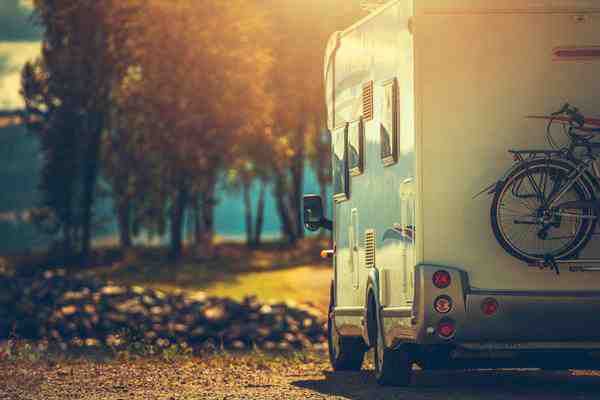
Prior to the pandemic motorhomes and trailers were growing a large following of outdoor enthusiasts. Then COVID-19 hit and traveling to the great outdoors in your own personal vehicle complete with beds, bathrooms and everything you need to cook and sleep seemed like the best way to getaway—for those willing to travel—as the virus spread.
RVShare, a peer-to-peer RV rental marketplace, has found that, while the pandemic may be losing steam, traveling by RV remains as popular as ever.
TravlePulse spoke with RVShare CEO Jon Gray about the boom in the RV market and how the rental industry is blossoming and providing new opportunities for travelers.
Unlike some fleeting pandemic trends, traveling by RV seems to have found a foothold and gone from a nice idea to a mainstream product.
"As the global travel industry makes its return, we focused our research on more deeply understanding and assessing the emerging motivators and desires of today’s travelers,” said Gray. “Our findings are encouraging and reflect the ongoing evolution of the travel industry, proving that desire to hit the road has never been stronger. While 2020 and 2021 may have been a time of discovery for many when it comes to RV travel, the category is growing in demand as more and more people find RV and motorhome accommodations appealing for a number of priorities and reasons.”
Gray also noted that the pandemic increased the awareness of flexible lodging.
"People are going to go back to international traveling, but the big takeaway is that flexible work has completely changed how travel is going to work," he said. "Further, RVs are a nice way to get back into travel."
National parks are obviously one of the most sought-after destinations to travel to with a motorhome, but many people are discovering new ways to utilize this flexible accommodation option, including as a place to say at events and festivals.
Gray said that many RV owners are okay with travelers taking their vehicles to festivals, noting that users should expect to pay a premium.
"Sometimes owners increase security deposits or have GPS systems for where drivers cannot go," said Gray. "We’ve found that people tend to be willing to pay more to bring cars to festivals."
Trends in the RV rental industry have been transforming as the pandemic has transformed the way people think about travel.
Gray noted that there are essentially two main rental profiles: long weekend getaways from Thursday to Sunday and weeklong rentals. During the pandemic, RVShare saw many more 14-plus day trips. The average trip length is seven days, which is up over the last two years.
The most popular type of RV that travelers are looking for is a Class C. These vehicles, where the cab of the truck is attached to the motorhome, offer more capacity and are ideal for families. The RVs that have the most bookings per unite, Gray said, are Airstreams and Sprinter vans.
One thing RV renters should consider is where they are going to take their RV once they have rented it. With a surge in popularity of renting RVs, there has been a similar surge in demand for places to camp.
Popular campgrounds often are booked months in advance, but Gray highlighted other options for camping, including peer-to-peer camping websites such as Hipcamp; boondocking; and private campgrounds located near popular destinations.
Leave a Reply
Please sing in to post your comment or singup if you dont have account.
Favorite articles
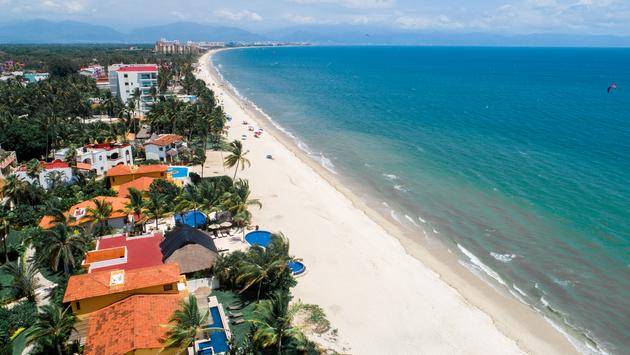
Riviera Nayarit Consolidates Air Connectivity With New Routes
January 03,2022

Looking for a Black Friday Deal? Try Summer 2021 Travel
December 30,2021
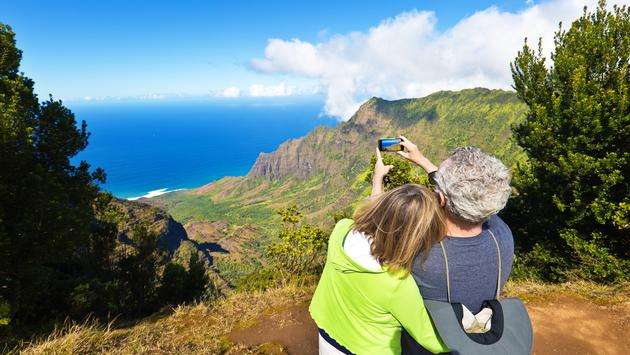
Kauai Drops Out of Hawaii’s Pre-Travel Testing Program
December 28,2021
Most popular articles
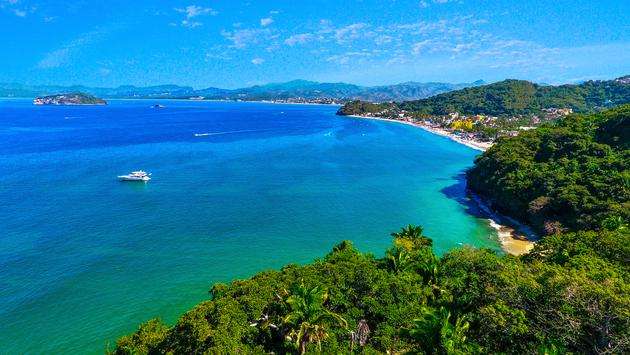
Riviera Nayarit Proves Resilience With New Hotel Openings
January 04,2022
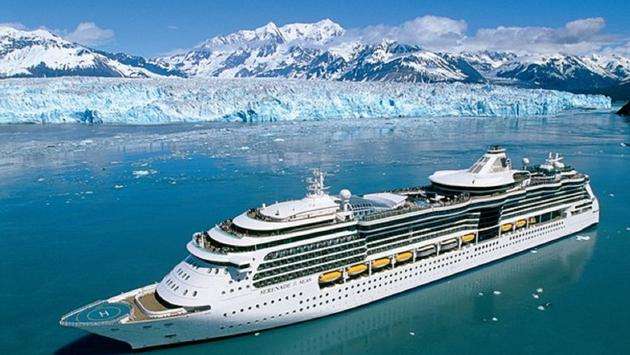
Large Cruise Ships Return to Alaska
December 29,2021

How to Score Free Disney World Theme Park Tickets in 2021
December 26,2021

Hotel Xcaret Arte To Make Its Debut in July 2021
December 25,2021
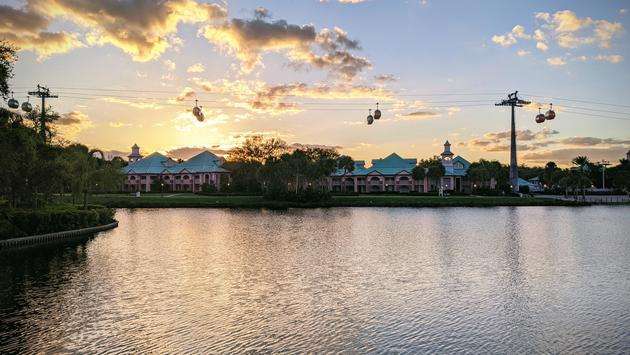

Families Can Virtually Visit Santa With Finnair
December 20,2021
Popular articles
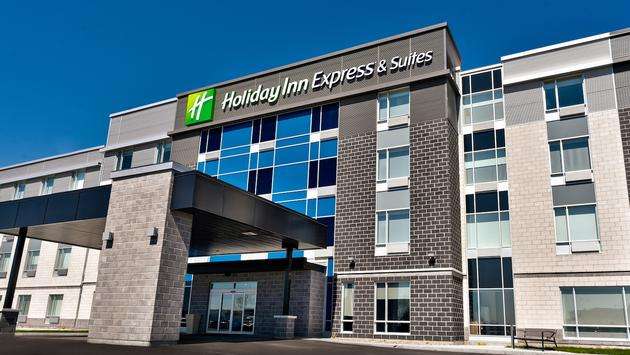
Public Donates More Than $100K To Harassed Hotel Worker
January 02,2022
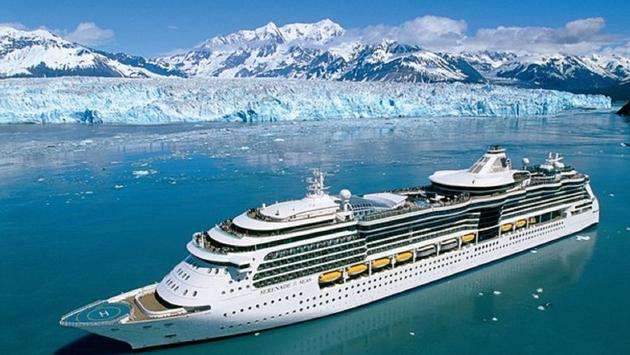
President Biden Signs Law To Restart Cruising in Alaska
January 01,2022

New Proposal Would Create 24-Hour Nightlife Zones in New York City
December 31,2021
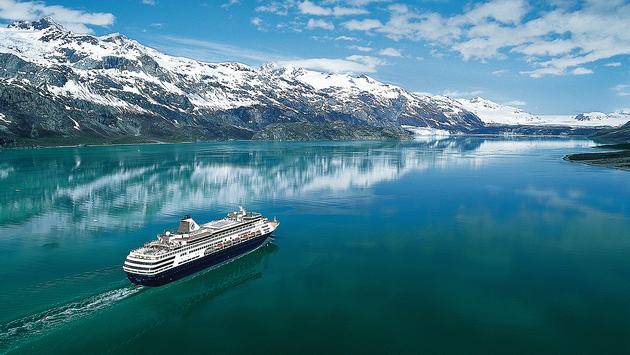
Holland America Line Launches 'BIG' Wave Season Offer
December 23,2021
Categories
Favorite articles
Riviera Nayarit Consolidates Air Connectivity With New Routes
January 03,2022
Looking for a Black Friday Deal? Try Summer 2021 Travel
December 30,2021
Kauai Drops Out of Hawaii’s Pre-Travel Testing Program
December 28,2021
Most popular articles
Riviera Nayarit Proves Resilience With New Hotel Openings
January 04,2022
Large Cruise Ships Return to Alaska
December 29,2021
How to Score Free Disney World Theme Park Tickets in 2021
December 26,2021
Hotel Xcaret Arte To Make Its Debut in July 2021
December 25,2021
Families Can Virtually Visit Santa With Finnair
December 20,2021
Popular articles
Public Donates More Than $100K To Harassed Hotel Worker
January 02,2022
President Biden Signs Law To Restart Cruising in Alaska
January 01,2022
New Proposal Would Create 24-Hour Nightlife Zones in New York City
December 31,2021
Holland America Line Launches 'BIG' Wave Season Offer
December 23,2021

